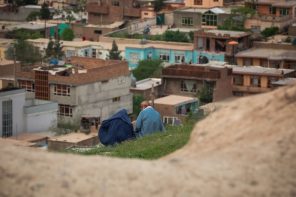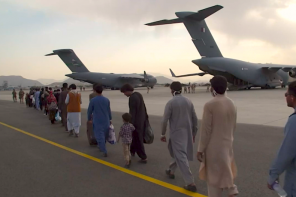I confess I don’t get the celebration of ignorance. There are a lot of things I don’t know, but I do know that not knowing is not a cause for merriment. I wish I had the time, energy, and the space in my head, to know more about the hard sciences, to study other languages, even just to get to know other people. But it seems to be a condition of Republican candidacy to mock what you do not understand. This is apparently a leadership trait.
Herman Cain has a little bit of momentum going for him, some ideas that have captured the public imagination, and some thoughts about where America stands in the world. When asked if he is prepared for foreign policy questions, such as “who is the president of Uzbekistan?” Cain responds by making a bad joke (“…when they ask me who is the president of Ubeki-beki-beki-beki-stan-stan I’m going to say, you know, I don’t know. Do you know?”). Not just a joke, for he’s mocking the country, and laughing at the similarity of its name—in his head—to other countries. As if these are imaginary places on an irrelevant map.
He argues that Uzbekistan has nothing to do with America’s economy; a “small, insignificant” state—uncritical for national security. Fail. Irrelevant to our well-being? False. In fact, Uzbekistan is not just any other country, and the other “-stans” around it are not merely exotic borderlands meaningless to us. We have thousands of troops, and billions of dollars on the line, in Central Asia (composed of Afghanistan, Pakistan, and the five former Soviet states of Central Asia, which include Uzbekistan).
We have been at war in Afghanistan for a few days plus ten years, the longest war in American history. To which, apparently, the best attitude is jocosity. Or outright cluelessness. The billions spent there are billions that could have been spent here; how can a man who claims he’s ready for the presidency not know how the longest war in our history is connected to the winter of our economic malcontent. And the war there, inching towards an awkward conclusion, may mean more foreign policy headaches for America in coming years and even decades. We leave Afghanistan and Pakistan with tremendous instability, and ongoing militancy.
American predator drones target militants, and often kill civilians, on the borderlands of Pakistan. It is a source of tremendous rage for the people in the region, and has pushed Pakistan’s military to take a more populist and thus anti-American stance. And this means Uzbekistan’s profile is rising, as it has at times during the War on Terror, as we try to figure out how to go about doing whatever it is we need to do to win in Afghanistan.
Uzbekistan is once again very important to the United States. As Pakistan becomes a more unwilling ally, and sending supplies through Pakistani access points to Afghanistan becomes a more difficult and dangerous proposition, the Obama administration has been making overtures to Uzbekistan. If it helps things any, think of central Asia as another corner of the Muslim world that resembles the Arab world politically. In a very depressing way.
These five former Soviet countries (“stan” means “land [of]”) have a lot in common, having recently graduated to independence after decades of brutal and painful Soviet rule. They are overseen by mostly autocratic, corrupt, and deeply unpopular regimes, using oil and natural gas to power their unpopular politics, giving their populations little room to maneuver.
Perhaps one reason we haven’t seen a Central Asian Spring is because these mostly Turkic, largely Sunni countries are still in a post-Communist hangover, trying to figure out who they are and what their place in the world is. By far the most populated of these vast, sparse countries is Uzbekistan, and it’s unfortunately inappropriately named dictator, Islam Karimov, is a holdover from the Soviet era.
He is also easily one of the most brutal rulers in the world, and his regime is known for huge human rights violations. But nevertheless, because of its size, population, and a land boundary with Afghanistan, the Obama administration is making a deal with the devil, trying to shift more of our war effort through this country instead of Pakistan. Unfortunately the war to give Afghanistan a more enlightened government will require empowering one of the least enlightened governments in the region, a contradiction that should put the entire war on terror in a new light.
And he’s trying to be a future Commander-in-Chief. I cringe to think what else he doesn’t know about some of the most critical regions in the world.




